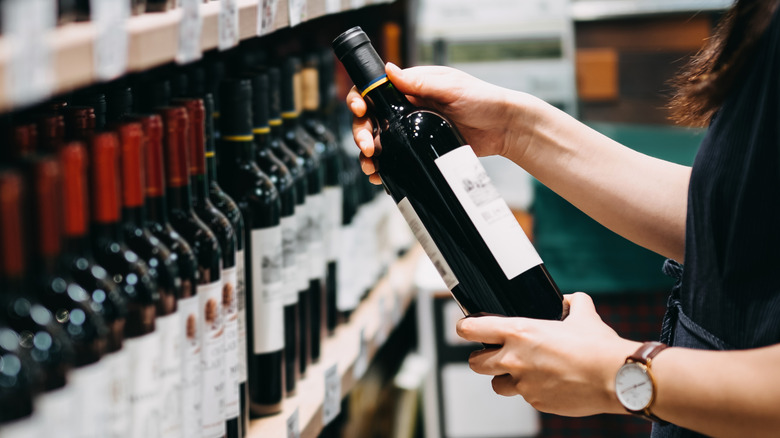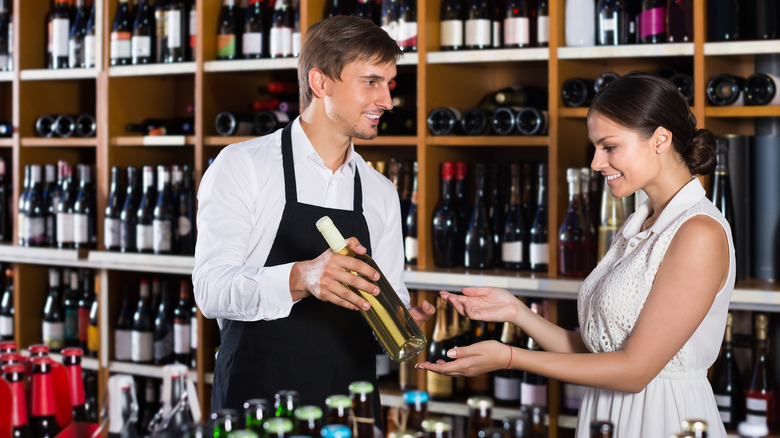Why Employee Recommendations Should Be Your Go-To When Shopping For Wine
Shopping for wine is no easy task. You can either stick with your favorites and get a tried-and-true good bottle of wine, or you can branch out and risk purchasing something you end up pouring down the drain.
However, in an exclusive interview with Daily Meal, Rodolphe Boulanger, Vice President of Wine Merchandizing at Total Wine & More, offered a workaround for this. He says that the key is to speak to the wine store employees: "Wine store employees are invaluable for their recommendations. They're usually deeply passionate about wine and love helping customers discover wines that meet their particular needs. ... They're the front line to providing great customer service."
Employees can help you learn how to choose a rosé, white, or red wine, depending on your preferences. The key, of course, is to ask the right questions when speaking with wine professionals. That way, they can guide you according to what you're likely to enjoy.
Know what to say to get great recommendations
Rodolphe Boulanger says that one key to getting a great wine recommendation is to "tell them what you like –- whether it's a brand, grape variety, region, or style –- and what you are using the wine for (entertaining, special occasion, [as a] gift, etc.)." Employees know which bottles come from which regions or feature a certain type of grape, which can help save you from hunting up and down the aisles to find something you like. They can also offer wine pairing suggestions depending on what you'll be serving the beverage with, too.
And, employees help you match the bottle to the occasion. If you're after something for a summer barbecue, you're more likely to want a wine that can be chilled to provide a cool, refreshing sip. On the other hand, if you're choosing a winter wine, you might want something at room temperature or even a blend that can be turned into a warm cup of mulled wine. Plus, if you're giving a gift, they can help you find a good crowd-pleaser bottle. That can save you from guessing what profiles your host might like.
At the end of the day, Boulanger explains that it's important to "be open and transparent about what you're looking for. And it's ok to not know." Let the employees know things like how much you're willing to spend, for instance, and be clear about anything you dislike. With just a few key details, Boulanger explains, "that's usually enough to get a fruitful conversation started."
What if you can't get an employee recommendation?
Sometimes, when you're at the wine shop, the employees might be wrapped up with another customer while you're on a time crunch. If that's the case and you can't get a recommendation, don't panic. Rodolphe Boulanger offers a quick workaround: "I suggest relying on a mixture of three things –- customer reviews, third-party ratings from critics and publications, and product descriptions. [The latter should] answer two questions: Do other people think this wine is good, [and] does this wine sound like something I would like?"
You can also ask people you know who have similar taste in wine for their recommendations. Chances are that if your friend who loves Malbec as much as you do gives you a couple of bottles to try, you'll end up enjoying their recommendation. Just remember that, once again, it doesn't hurt to ask clarifying questions. For instance, ask about the body, the tasting notes, and the level of bitterness to make sure you get a combination you love.


